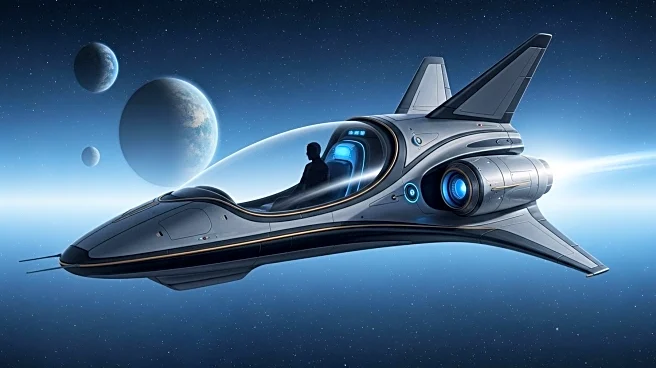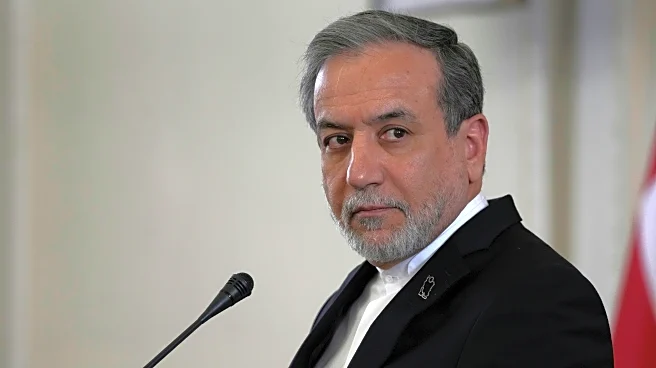What is the story about?
What's Happening?
Blue Origin successfully conducted its 15th space tourism flight, known as NS-36, from its West Texas launch site. The New Shepard vehicle carried six passengers, including a mystery passenger who revealed his identity post-flight. The crew, dubbed 'Space Nomads,' included Jeff Elgin, Danna Karagussova, Clint Kelly III, Aaron Newman, and Vitalii Ostrovsky. The mystery passenger was Will Lewis, CEO of Insmed, fulfilling a lifelong dream. The flight reached a maximum altitude of 66 miles, surpassing the Kármán line, and lasted 10 minutes and 21 seconds, offering passengers a brief experience of weightlessness and views of Earth from space.
Why It's Important?
This flight marks a significant milestone in the commercial space tourism industry, showcasing Blue Origin's continued commitment to making space accessible to private individuals. The inclusion of high-profile passengers like Will Lewis highlights the growing interest and investment in space tourism. As more flights are conducted, the industry could see increased competition, innovation, and potentially lower costs, making space travel more accessible to a broader audience. This development could also spur advancements in related technologies and inspire new generations to pursue careers in space exploration.
What's Next?
Blue Origin is expected to continue its space tourism missions, potentially increasing the frequency of flights and expanding its customer base. The success of NS-36 may encourage other companies to accelerate their own space tourism plans, leading to a more competitive market. Future missions might include longer durations or new experiences, such as orbital flights. Stakeholders, including investors and space enthusiasts, will likely watch closely for announcements regarding new technologies or partnerships that could further enhance the space tourism experience.
Beyond the Headlines
The ethical implications of space tourism, such as environmental impact and accessibility, may become more prominent as the industry grows. Discussions around the carbon footprint of rocket launches and the exclusivity of space travel could influence public perception and policy. Additionally, the cultural impact of space tourism, including its potential to inspire global collaboration and innovation, could lead to shifts in how societies view space exploration and its role in addressing Earth-based challenges.
















